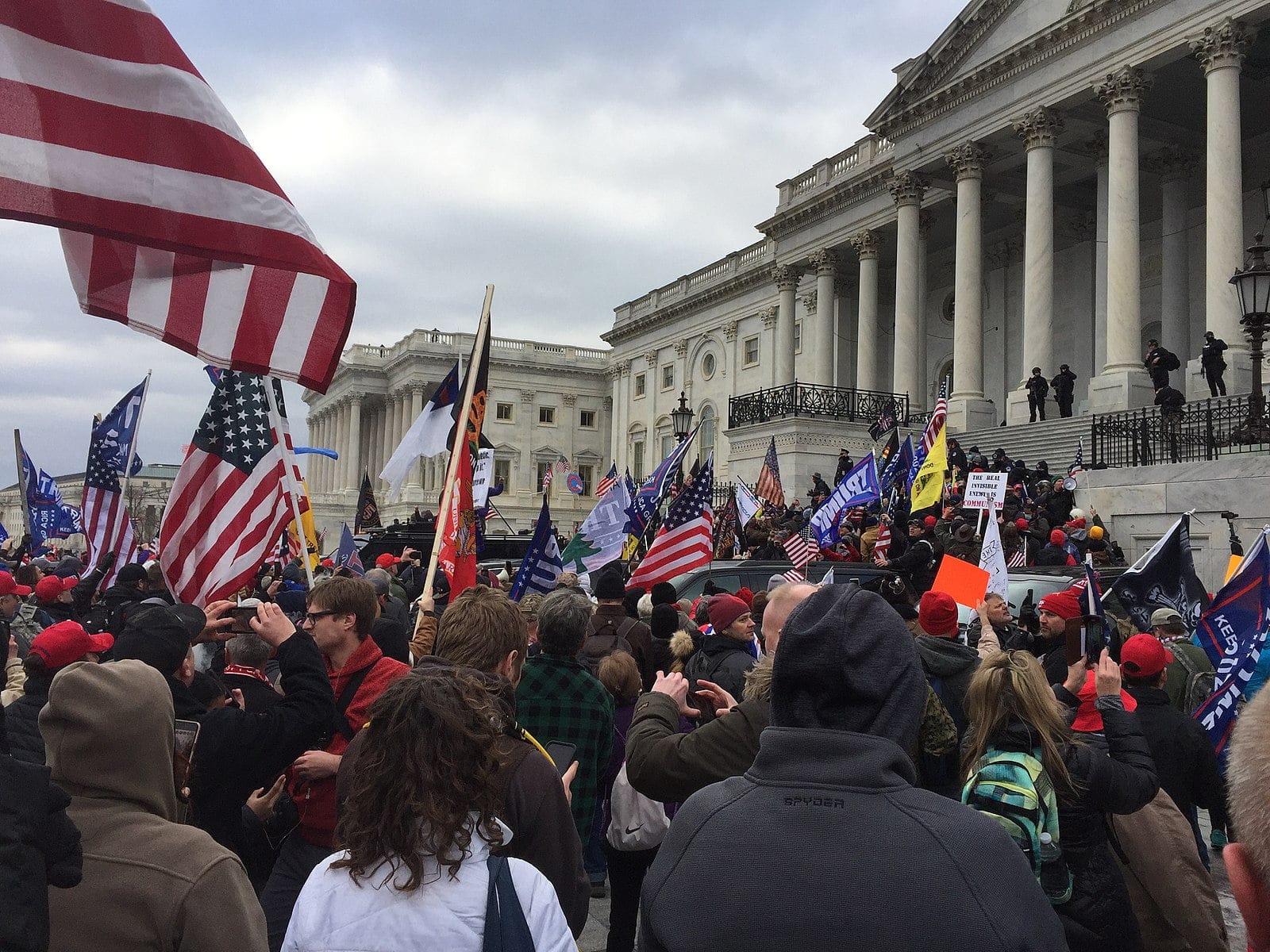More than 1,100 people—most of whom are white, employed men between the age of eighteen and fifty—have been charged by the government in connection with the January 6, 2021, insurrection. Several were reportedly surprised by their legal troubles because they viewed themselves as having acted to save democracy.
One of the men convicted was Stewart Rhodes, the founder and leader of the Oath Keepers, a far-right anti-government militia group. Rhodes was sentenced to eighteen years in prison for seditious conspiracy and other charges related to the insurrection, but he has argued that he deserves leniency because his organization operated in service of the public.
It is not just jailed participants who view the attempted coup as an expression of patriotic duty. Nearly half of Republicans viewed it as an act of patriotism, according to a December 2021 poll.
The truth is, this feeling is a core part of American identity, and it brings together two ideological strands present in the American experience since its founding: martial republicanism and white male supremacy.
Martial republicanism encompasses the belief that men—and only men—become good citizens by serving their country in war and politics. This ideology is the seed of modern democracy. Many democratic countries today recognize political participation and military service as the rights and obligations of citizenship.
Martial republicanism does not have a specific answer to who exactly may become a virtuous citizen. At the time of the American Revolution, white male supremacy provided that answer. It was white men who could be entrusted with the country’s defense and its political life.
This was inscribed in the United States’ institutions. The Uniform Militia Act of 1792 mandated white men to serve in the state militia. In some states, militia membership enabled men to vote. Because state governments didn’t have the fiscal capacity to pay for defense, the law required these men to own their own firearms and military supplies.
READ: In ‘The Age of Insurrection,’ the Politics of Menace and Intimidation Have Become Normalized
To be sure, the country’s military has changed since. In 1903, militias were federalized and professionalized. But an ideology that valorizes guns and views government institutions with hostility has survived. And when the gun world merged with the Republican party in the 1990s, these ideas received broader attention.
In a 2023 survey, 33 percent of white Americans agreed that gun ownership is a sign of good citizenship. Alarmingly, 56 percent responded that the government is so powerful that people need guns to protect themselves from it.
The link between civilian gun ownership and political violence is reinforced by political elites, from former President Donald Trump to Senator Joe Manchin, Democrat of West Virginia. Allusions to armed citizenship and violence have been featured in political ads. Candidates have even appeared armed in Christmas cards.
But it doesn’t stop there.
Ads have featured Manchin shooting through a bill attempting to regulate fossil fuel companies, an armed Eric Greitens (former Republican governor of Missouri) breaking through a suburban house door hunting RINOs (Republicans in Name Only), and Jerone Davison (a Republican congressional candidate from Arizona), a Black man, holding an AR-15 in order to scare away “a dozen angry Democrats in klan hoods” invading his lawn.
To be sure, their proponents say that these ads are purely metaphor, but studies show that violent language can have deadly consequences, and trusted political elites can incite followers to violence.
The wave of threats and violence in politics should not be surprising. The institutional and cultural conditions that led to January 6 have not abated; if anything, the landscape has only become more permissive. Data shows that, from the U.S. President down to school boards, officials are regularly threatened with actual violence. Specifically, while the U.S. Capitol Police recorded 3,939 threats against Congress in 2017, that number was 7,501 in 2022, nearly doubling in six years. The threats targeted both parties equally.
Unless political elites and leaders take these warnings seriously, the 2024 election cycle promises more excesses and, possibly, more violence. The country cannot endure a repeat of January 6.
This column was produced for Progressive Perspectives, a project of The Progressive magazine, and distributed by Tribune News Service.






